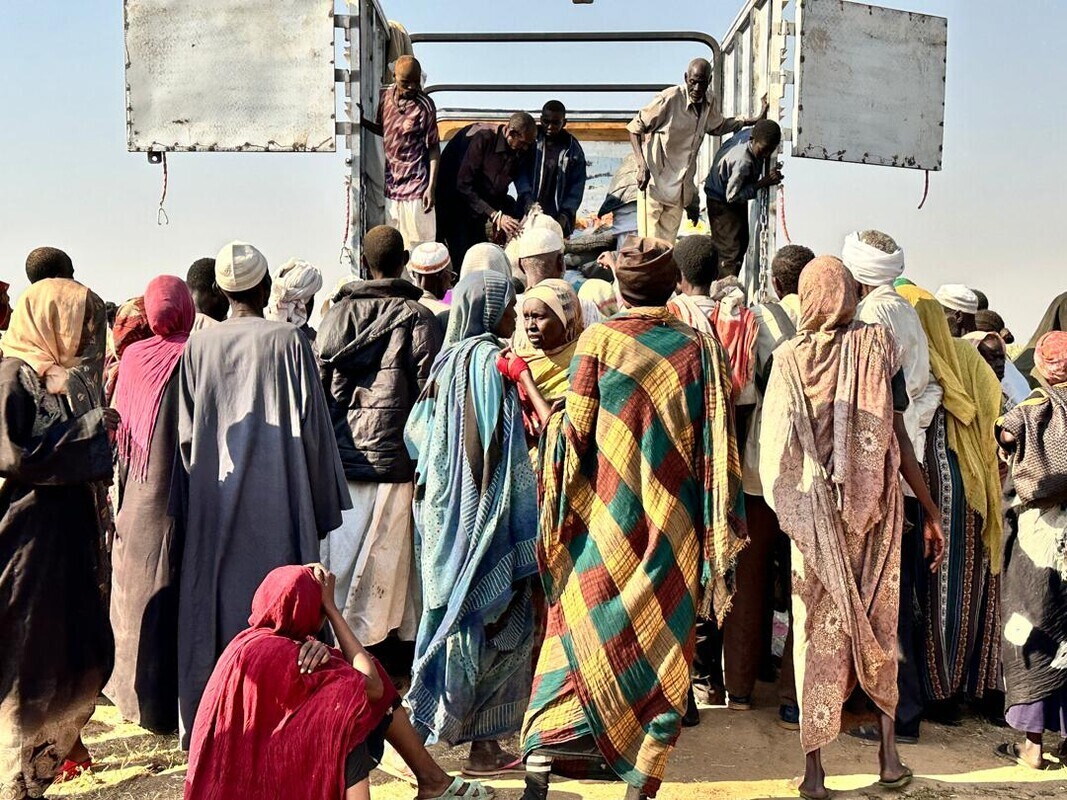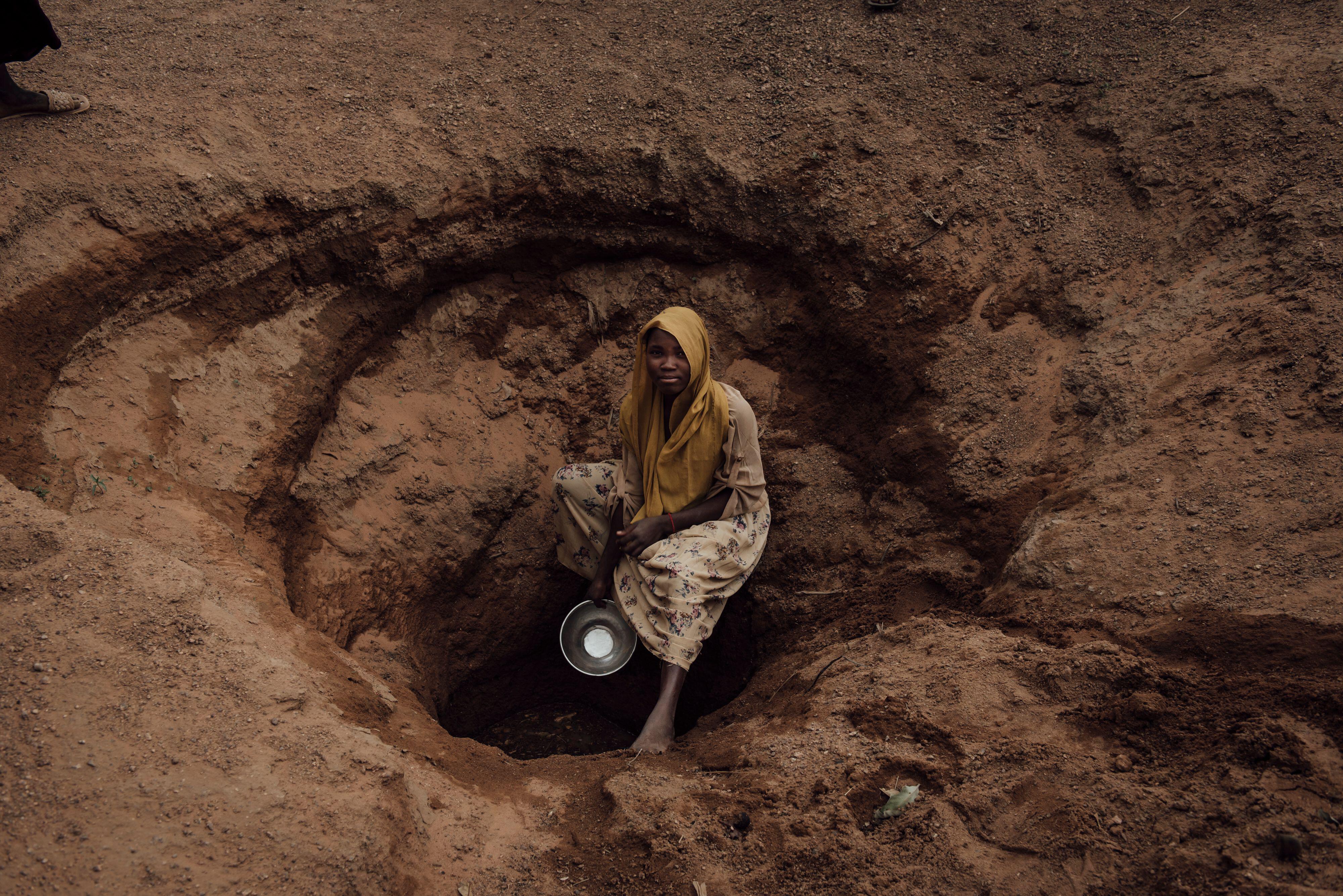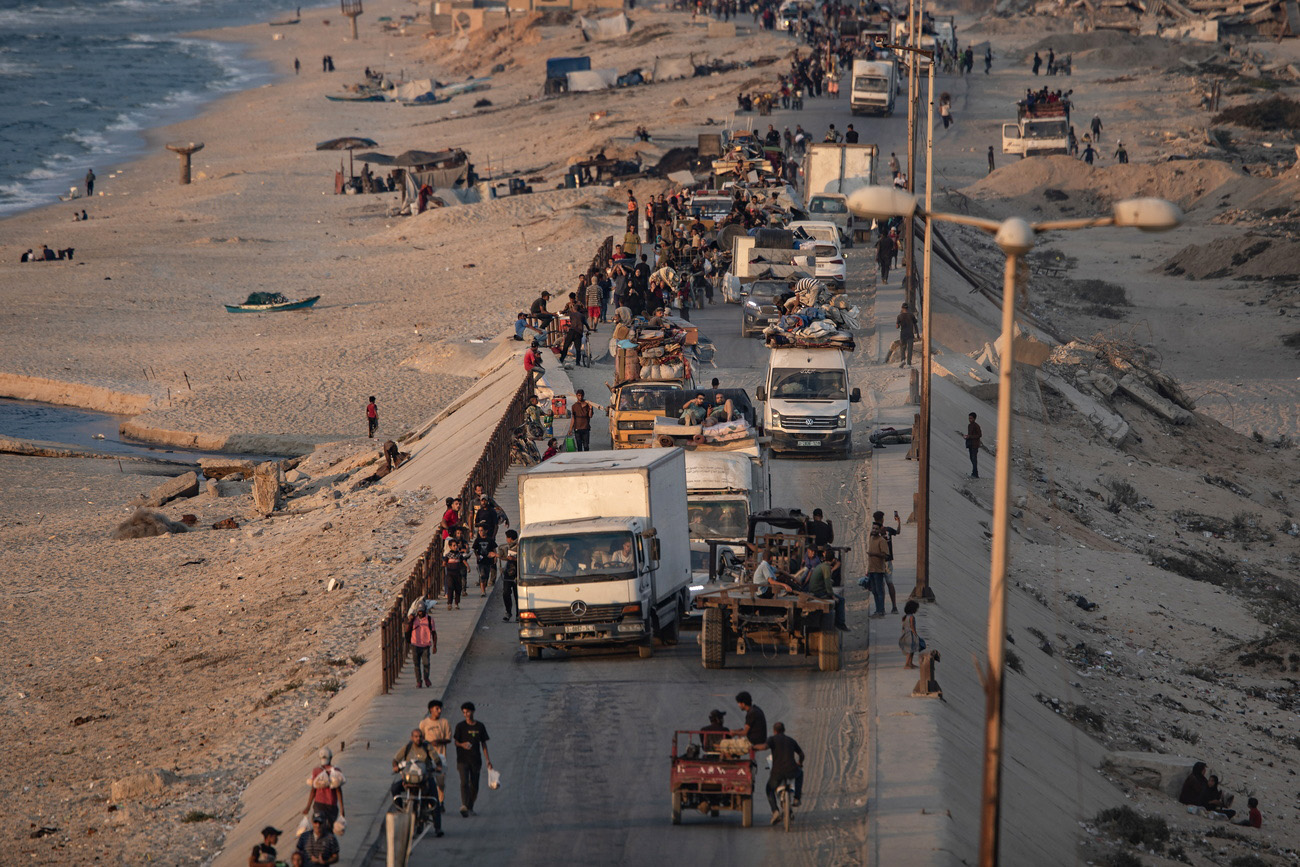
UN’s Mô Bleeker: ‘Everything we have built is being called into question’

Atrocity crimes are unfolding with impunity in Gaza, Sudan and Myanmar. For Mô Bleeker, the UN Secretary-General’s Special Advisor on the Responsibility to Protect, the task has never felt more urgent – or more difficult.
“Even when it’s very hard, you have to go on. We are living in a very critical moment.”
Sitting by Lake Neuchâtel near her home in Switzerland, Mô Bleeker, the UN Secretary-General’s Special Advisor on the Responsibility to Protect, reflects on a turning point in global governance that marked a “very important normative shift”, meant to build a world less defined by conflict and cruelty.
Twenty years ago, all UN heads of state and government endorsed the Responsibility to Protect. The commitment redefined sovereignty – once understood mainly as a right of non-interference – as a duty to protect populations and prevent atrocity crimes. These include genocide, war crimes, ethnic cleansing and crimes against humanity.
Today, that principle is at the heart of her work. Bleeker was appointed in March 2024 as the United Nations Secretary-General’s Special Adviser on the Responsibility to Protect. Her role involves advising Secretary-General António Guterres on when to raise the alarm about situations where atrocity crimes are occurring or may occur.
“The Responsibility to Protect principle indicates a red line where these crimes shall no more happen and it is the responsibility of States to prevent them, stop them if they are happening and protect the population who may be affected,” says Bleeker.
Under this principle, each UN member state has the primary responsibility to protect its own population. When states are unwilling or unable to do so, the UN Security Council has the responsibility to respond and ensure protection. Yet while the principle is clear, its implementation remains fraught.
Lack of implementation
“Unfortunately, what we see is a lack of implementation and a lack of political will,” Bleeker says.
That challenge, she adds, is not unique to the Responsibility to Protect. The same gap between commitment and action can be seen in other areas where the international community has made promises, including human rights, international humanitarian law and climate change.
She points to Gaza, Ukraine, Sudan and Myanmar as stark examples of the world’s failure to halt wars marked by atrocity crimes or credible allegations of them.
In Gaza, more than 67,000 people have been killed since October 7, 2023, according to the Hamas-run health ministry, after Israel launched a military offensive in response to Hamas’s attacks and hostage-taking. There are reports of malnutrition-related deaths as Israel cut off aid, while much of the civilian infrastructure has been destroyed.
In UkraineExternal link, tens of thousands of civilians have been killed since Russia launched its full-scale invasion in February 2022. The war has been marked by indiscriminate attack on civilians, torture, sexual violence, and the deportation of children – further examples of the international community’s failure to uphold its responsibility to protect.
In SudanExternal link, more than 150,000 people have been killed since it plunged into civil war in April 2023, with some 12 million displaced. Civilians there have endured mass killings, ethnic cleansing, sexual violence, torture, and deliberate starvation as rival forces wage war with impunity and humanitarian access remains blocked.
Some 1 million Rohingya refugees from MyanmarExternal link remain in camps in Bangladesh after a military clampdown in 2017 described by the UN as ethnic cleansing. After a military coup on February 1, 2021, Myanmar has plunged into violence and instability.
Failure to stop this long list of atrocities, Bleeker says, reflects deep divisions within the international system itself. She points to the lack of consensus in the UN Security Council, where the five permanent members – the United States, Russia, China, France and the United Kingdom – each hold veto power.
“It would be beautiful if there were a consensus in the UN Security Council, particularly when there are alleged risks of atrocity crimes or when they are being committed, but that is currently not the case,” she remarks.
In September, for example, the US used its veto power for the sixth timeExternal link to block a Security Council resolution on Gaza calling for an immediate and permanent ceasefire and release of all hostages. Russia has vetoedExternal link Security Council resolutions condemning its war and military activities in Ukraine, while China used its vetoExternal link to block a UN condemnation of the military coup in Myanmar.

Geopolitical divides and double standards
Asked why the international community has failed to act in places like Gaza or Sudan, she points to an accumulation of factors, not least the deep geopolitical divides paralysing collective action.
“What we are also seeing is a very negative dynamic – one that pushes, more and more, towards violations of international humanitarian law, human rights abuses, and commission of atrocity crimes with total impunity,” she says. “What we are facing now is a moment where everything we have built over those decades is being called into question.”
The United Nations was born after the Second World War, with the aim of establishing lasting peace. A system of international law was meant to ensure an end to atrocity crimes and State aggression. However, 80 years on, rising extremism and the return of open conflicts poses an existential threat to this multilateral system and the UN itself.
Western powers have imposed successive sanctions on Russia for its war in Ukraine, yet little has been done to halt the devastation in Gaza or Sudan. Does this, in her view, reflect a problem of double standards?
“Yes, there are double standards,” she replies, “and that’s a major problem. The United Nations is a huge machinery created by states. States take decisions in the General Assembly on policies, budgets, and so on.
States are often more sensitive to the suffering in one situation than another – or their national interest, you may say. I would say that’s a very normal problem. But at the current scale, and given the gravity of the consequences, it is unbearable.”
>>>Read more on Switzerland and gold smuggled out of Sudan

More
As Sudan’s agony deepens, scrutiny sharpens on UAE and gold
When protection fails: Sudan and Gaza
As for who bears responsibility for the current state of affairs, Bleeker says it is not only the permanent members of the UN Security Council. Other actors also play a role, including neighbouring states, regional powers and private interests that fuel or enable conflict.
“Of course, some spoilers are more active than others,” she says, “but it’s the duty of every state to uphold its responsibility. So all those supporting armed actors in Sudan, for example, could be called to account and told: what you are doing is unlawful.”
Sudan’s brutal civil warExternal link has been ongoing since April 2023, at a terrible cost to civilians. Outside actors are allegedly also involved, notably the United Arab Emirates, which the government accuses of backing the paramilitary Rapid Support Forces and conducting drone strikes in Sudan.
At the end of October the paramilitary Rapid Support Forces captured the city of El Fasher in the east of the country after an 18-month siege. Since then the RSF has been accused of killing hundreds of unarmed civilians in ethnically motivated attacks.

More
Impunity is stalling all peace efforts in Sudan. Can it end?
The World Health Organization noted that more than 460 patients and their families were killed in a single hospital attack on October 28. The city’s maternity hospital was hit five times the same month.
Asked how she would qualify the situation in Gaza now, Bleeker notes reports by two UN Special Rapporteurs and the latest report of the UN Commission of Inquiry on the Occupied Palestinian Territory, including East Jerusalem, and IsraelExternal link, which concluded that genocide is being committed.
Under the Responsibility to Protect framework, Israel bears the primary obligation to safeguard civilians in areas under its effective control, while the international community has a duty to act when such protection fails.
“For war crimes, there are enough reports that include war crimes,” she says. “For ethnic cleansing, we have had announcements of this, likewise crimes against humanity. From the perspective of the Responsibility to Protect, I say that all the risk factors are already there.”
>>>Read more on the UN in the Middle East

More
How the UN is navigating diplomacy, international law and humanitarian aid in Gaza
Reacting only when the fire is already burning
Bleeker sees one of the main obstacles to preventing genocide and other atrocity crimes as a fundamental misunderstanding of what prevention really means. As part of her mandate, she works to promote the creation of early warning systems at national, regional and international levels, and to strengthen those that already exist.
“The problem is that there is a culture of reacting only when the fire is already burning,” she says. “But this is precisely a moment when polarisation is at its highest, when parties are fully involved in war and violence. When the house is actively burning, thinking that the international community can easily take a decision to stop this respectfully, nicely, and in a friendly manner is not realistic. But if we had a culture and politics of permanent prevention much earlier, that would change everything.”
Every country, she says, can strengthen its own early warning systems – whether at war, in transition or at peace – as part of what she calls “permanent prevention.” “I think that we ought to put much more emphasis on understanding what it means in normal times,” she says. By identifying risks early and acting before tensions escalate, she argues, states can build laws and mechanisms that help prevent future violence and protect their populations.
Turning that vision into practice, however, is far from easy. Bleeker’s small office operates with limited staff and relies on voluntary contributions to fund its projects. The position of Special Adviser itself carries no salary, and resources are often stretched thin across competing crises. Yet she draws strength from a clear sense of purpose.
“It’s midnight in the century, don’t turn off the lights that are still on,” she says. “One of those lights is our willingness and capacity to protect, to analyse and to take early decisions which align with what we declared when we said we have a United Nations.”
Read an extended version of this interview, first published on justiceinfo.netExternal link
Edited by Virginie Mangin/Dominique Soguel

In compliance with the JTI standards
More: SWI swissinfo.ch certified by the Journalism Trust Initiative






























You can find an overview of ongoing debates with our journalists here . Please join us!
If you want to start a conversation about a topic raised in this article or want to report factual errors, email us at english@swissinfo.ch.